
Resources for survivors, loved ones, and professionals
This website provides information, education, and help to those adversely affected by or interested in cultic and other high-control groups and relationships.

Breaking Free Newletter
Breaking Free is a monthly newsletter with articles, stories, resources and news for adult survivors, those who support them and community members.

Towards Recovery
If you experienced trauma or abuse as a child this fact sheet can help you understand more about how what happened to you might have affected you.

Fact Sheets – Trauma-related Experiences
This series of Fact Sheets explains more about what happens with experiences of complex trauma, the effects, the reactions people have, the way people cope and possibilities for healing.

Adverse Childhood Experiences (ACE) Study
Find out about the Adverse Childhood Experiences (ACE) Study. You can find out what your ACE score is, and more importantly, what your Resilience Score is.

Trauma and Dissociation Resources for Survivors and Loved Ones
Resources for the public on trauma and dissociative disorders, including information on how to support someone who lives with dissociative identities; and websites of interest for people with dissociative identity disorder.
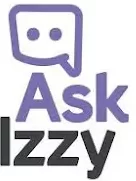
Find the help you need, now and nearby
Ask Izzy can help you to find the services you need, now and nearby. It is free and anonymous, and you can search over 360,000 services to find housing, meals, healthcare, counselling, legal advice, addiction treatment and a whole lot more.If you’re on the Telstra mobile network, you can access Ask Izzy even if you don’t have credit.

Article – Hearing the Cry
Carolyn Spring shines an illuminating torch on how traumatised children adopt to survive; why coping strategies linger long after one is ‘safe’; and explain what is needed to help us heal from those painful experiences.

Article – Marginal Gains
Carolyn Spring makes a compelling case for trauma treatment being a process of marginal gains, rather than One Big Event.

Article – Trauma and the bears
Recovery from trauma starts with acknowledging the existence of bears. It requires the involvement of a safe tribe. It necessitates the telling of our story and the healing of our wounds. And it requires action to keep us safe from further bear attacks.
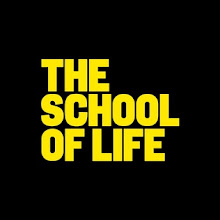
Video – What Is an Emotionally-healthy Childhood?
We know how many adult problems come down to issues from childhood – but what exactly is that wondrous, hugely desirable thing, an emotionally-healthy childhood? This video by the School of Life identifies the central themes of the sort of childhood that can leave us balanced, happy and sane.
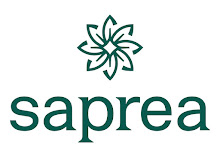
Blog for Survivors of Child Sexual Abuse
Saprea’s blog page covers a range of issues survivors of child sex abuse commonly grapple with, such as ‘How to manage your triggers in the digital era’; ‘Is a support group right for you?’; How to handle the holidays as a survivor’, and many more.

Healing Resources for Survivors of Child Sexual Abuse
The survivor resources on the Saprea website provides practical support and education for survivors who want to heal from child sexual abuse. It includes suggestions to manage common symptoms such a sleep problems, flashbacks, and others.

Video – Journey of health and wellbeing
This video by the Department of Health in Western Australia (in conjunction with Tim Muirhead and Danny Fordcasts) highlights the effects of intergenerational complex trauma in Aboriginal communities, and why so many people continue to struggle on their journey to health and well-being.

Men’s Mental Health Resources
A great resource for men, written by men, to help help you deal with issues like depression, anxiety, anger, and suicidal thoughts. Expect a witty, NO-NONSENSE approach with practical advice for men, while you navigate around Dr Mahogany’s office.

Mental Health Support & Services
Arguably the most well-known and visited mental health organisation in Australia, focused on supporting people affected by anxiety, depression and suicide.

PTSD Coach Online
PTSD Coach Online is for anyone who needs help with upsetting experiences associated with trauma, and has heaps of practical suggestions for when you feel disconnected and disoriented, sadness or hopelessness, sleep problems, and many more.

Beauty After Bruises
This remarkable organisation features practical strategies for self-care, tools and techniques for flashbacks and distraction (to help with intrusive trauma symptoms) and much more – all tried and tested for and by trauma survivors.

Video – Towards Recovery
Given the prevalence of trauma and its effects, it is important for people to be informed about trauma and how best to support people who may have experienced it, particularly complex trauma related to trauma and abuse in childhood.

Supporting Recovery
The information can help you understand what happened to the person, how it affected them, how they coped and what you can do to support them.

Talking about Trauma Fact Sheets
These fact sheets for the general public have been designed to support safe conversations with different people in your life.
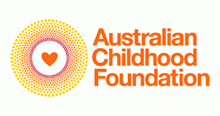
Children’s Voices
In their own voices, in their own way, children share their insights. The impact of childhood trauma on children, as captured in their drawings.
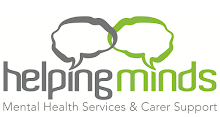
Helping Minds Support Services
Helping Minds offers free and confidential support to the family and friends of people living with mental health challenges across WA.

Loving a Trauma Survivor
How can we better understand the impact of trauma, and help survivors find the love, friendship and support they and their partner deserve?

Reduce the Risk of Child Sexual Abuse
Learn how to identify the signs of child sexual abuse and reduce the risks
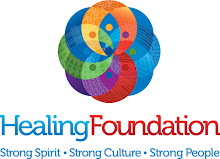
Stolen Generations project
The Healing Foundation is a national Aboriginal and Torres Strait Islander organisation that provides a platform to amplify the voices and lived experience of Stolen Generations survivors and their families.

Video – Supporting Recovery
Given the prevalence of trauma and its effects, it is important for people to be informed about trauma and how best to support people who may have experienced it, particularly complex trauma related to trauma and abuse in childhood.

Video – Window of Tolerance
Find out how a traumatised child swings from fight/flight to freeze/collapse; and what adults can do to help bring the child back into their window of tolerance so they can be at their personal best.

PDF – Supporter’s Guide for people supporting an adult survivor of sexual trauma
This guide is for family, friends, partners, carers and others who are supporting an adult who has experienced any form of sexual trauma, either recently, or in the past.
Adverse Childhood Experiences (ACEs)
ACEs can have a tremendous impact on future violence victimization and perpetration, and lifelong health and opportunity. The Centres for Disease Control and Prevention works to understand ACEs and prevent them.

Teach Trauma
This website provides information about psychological trauma. It also provides tools to teach others about trauma, including discussions about current controversies related to trauma.
Video – We Can Prevent ACEs
Learn how everyone can help prevent ACEs by using strategies to create safe, stable, nurturing relationships and environments for all children

Separating Fact from Fiction: An Empirical Examination of Six Myths About Dissociative Identity Disorder
A journal paper about myths associated with Dissociative Identity Disorder.
Relationship of childhood abuse and household dysfunction to many leading causes of death in adults
ACEs can have a tremendous impact on future violence victimization and perpetration, and lifelong health and opportunity. CDC works to understand ACEs and prevent them. The details and results of the study can be found here

Talking about Trauma – Health and other Service providers
This Blue Knot publication helps service providers to know when and how to ‘talk about trauma’ or to screen for trauma. This is not about providing clinical or specialist treatment. It’s a role everyone in services can play.

Talking About Trauma – Primary Health Care Providers
This publication seeks to educate the primary health care sector about the nature, types and adverse health impacts of trauma. Its goal is to help build the capacity of primary care providers to better engage with patients impacted by trauma, as a precursor to skills-based training.

Talking About Trauma – Primary Health Care Providers
This publication seeks to educate the primary health care sector about the nature, types and adverse health impacts of trauma. Its goal is to help build the capacity of primary care providers to better engage with patients impacted by trauma, as a precursor to skills-based training.

The cost of unresolved childhood trauma and abuse in adults in Australia
This report from Blue Knot Foundation and Pegasus Economics delineates the substantial costs of not providing the right support and services for adult survivors of childhood trauma and abuse.

Video – Art as a meditative practice
This video uses expressive therapies, in particular art as a creative means to engage in a meditative exercise to calm the body and mind. This exercise brings you into the present moment engaging in mindfulness.

Trauma and the Law
This free-to-download paper by Blue Knot Foundation presents current research into the need for and implementation of trauma informed practice into legal and justice settings.

Blue Knot Review Newletter
Blue Knot Review is a quarterly publication for professionals working with adults who have experiences of complex trauma. It features cutting edge research and new developments in trauma-informed, vicarious trauma and complex trauma policy and practice.
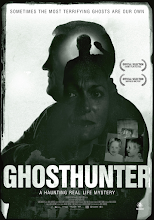
Ghosthunter – A Documentary
Ghosthunter is a real-world case study that draws from interviews filmed over seven years during the making of this documentary film; and shows the complexity and impact of childhood trauma, abuse and neglect.

Video – Grounding
This video introduces grounding with a short exercise to demonstrate how to regulate the body. There are many different types of grounding exercises that can be used to regulate bringing self back to the present moment and connecting with the body.

Resources for Professionals
Resources for professionals on trauma and dissociative disorders for professionals, including FAQs about complex trauma and dissociation, annotated bibliography, treatment guidelines, diagnostic tools, and screening instruments.

Ten steps to becoming a dissociation-friendly therapist
Working with clients who dissociate is not rocket-science … it’s just good basic decency and unconditional positive regard that attunes to and is curious about the experience of another human being. This article delves into ten aspects of how to do that in a room with a dissociative client.

Video – Understanding trauma and what it means for you as a professional
Given the prevalence of trauma and its effects, it is important for people to be informed about trauma and how best to support people who may have experienced it, particularly complex trauma related to trauma and abuse in childhood.

Fact Sheets – Understanding Trauma for Professionals
These fact sheets provide an overview of key information in regard to trauma and the different types of trauma, such as childhood trauma, complex trauma and intergenerational trauma.

Fact Sheets – Being Trauma Informed for Professionals
This series includes fact sheets for workers, managers, health professionals, General Practitioners and services

Fact Sheets – Trauma Related Experiences for Professionals
Blue Knot has developed a series of fact sheets about trauma related experiences. It includes fact sheets about coping strategies, emotions and arousal -including dissociation, impacts, healing and resilience and identity and belonging.

Blue Knot Foundation Practice Guidelines
Blue Knot Foundation’s Practice Guidelines portal offers extensively endorsed and integrative guidelines for diverse groups of health practitioners about the clinical and research evidence around working clinically with complex trauma and dissociative clients.

The Cost of Unresolved Childhood Trauma and Abuse in Adults in Australia
This report from Blue Knot Foundation and Pegasus Economics delineates the substantial costs of not providing the right support and services for adult survivors of childhood trauma and abuse.

Fact Sheets – Trauma Classification
If you have experiences of complex trauma, childhood trauma, child abuse or intergenerational trauma, or are supporting someone who has, these fact sheets will be relevant to you.

Fact Sheets – Trauma and Memory
Improve understanding around memory including the relationship between trauma and memory, body memories, delayed recall of memory and the role of dissociation. If you have experiences of complex trauma and your memory has been affected, or if you are supporting someone who has, we hope this section will help you understand what has happened better

Complex Trauma Resources
The Complex Trauma Resources website was developed for “people who don’t fit into neat little boxes and everyone who cares about them”, by people whose professional backgrounds in the trauma field have been informed by their lived experiences.

Glossary of Therapy Types
A very thorough glossary of the different types of therapy. You can click on a therapy type and get the definition/description, when it is used, what to expect, how it works, what to look for in a therapist who offers the therapy type, and references.

Healthy WA Service Finder
Find your nearest health service using the National Health Services Directory (NHSD)
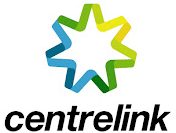
Payment and Service Finder
Use this online tool to see what payments and services you may be eligible for.
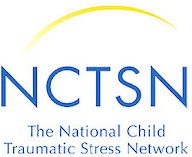
Refugee Trauma
Information about Refugees and Refugee Trauma, including basic definitions, a description of refugee core stressors, and recommendations related to screening, assessment, and intervention. Information and resources are available for multiple audiences including mental health professionals, healthcare providers, school personnel, policy makers, and more.
